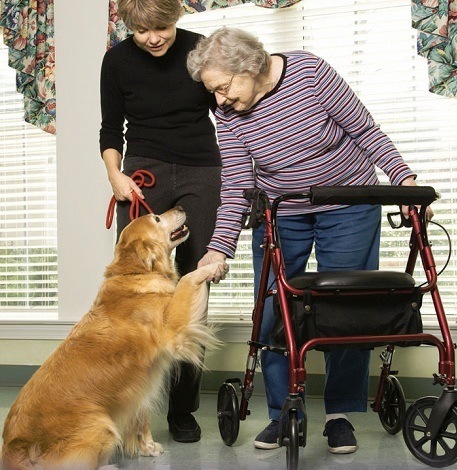

Written by: Jane Williams for Halifax Humane Society
Pets are astonishingly powerful creatures when it comes to reducing symptoms of depression and anxiety. Recently, a major literature review combined 17 studies, all of which suggested that pet companionship improves psychological well-being across a range of demographics, including children, the elderly, and people with life-altering disabilities. In particular, dogs are an especially valuable mental-health therapy for the warm, affectionate loyalty they exhibit towards humans in need.
Pets and Mental Well-Being
There are a number of theories as to why pet companionship is so effective in treating mental health symptoms. Recently, a large study concluded that, for individuals with mental health disorders, owning a pet provides “ontological security,” or a sense of order, meaning, and a positive outlook on the future. More broadly, animal companionship is part of a holistic approach to treating mental health that emphasizes daily activities. Regular exercise, alternative therapies, pet companionship, and other everyday tasks all work to enhance self-reflection in everyday life. Cumulatively, these efforts yield a positive approach to addressing mental health concerns among a range of demographics.
Resources For Dog Companionship
Individuals looking to spend time with pets to reduce symptoms of anxiety or depression have a number of viable options. Pet assisted therapy sessions are designed to help physically or psychologically disabled persons practice positive thinking strategies with the help of trained therapy dogs. Prospective pet owners can also consider applying to adopt a shelter dog, which can permanently change the mental and psychological well being of an entire family.
Pets For Elderly Care
Elderly populations are among the demographics that stand to benefit the most from animal companionship. One study, for instance, found that pet owners ages 65 and up were more likely to maintain strong psychological well-being and perform ADLS, or basic activities of daily living. Of course, there are practical considerations: elderly persons need to ensure that they or someone else is responsible for caring for their pets on a daily basis, which isn’t always feasible. However, with the right circumstances, owning or spending regular time with a companion pet can substantially improve the quality of life for older individuals as they approach retirement.
Spending time with a pet is a unique, vital aspect to treating mental health. Best of all, the exchange works both ways: giving TLC to a dog will brighten its day, while aiding in your treatment of mental health disorders.
Previous Article
Next Article